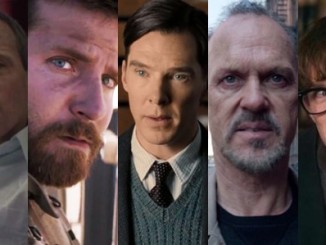
Among the giants of 20th century classic music, Leonard Bernstein perhaps stands the tallest. The first American-born conductor to lead a major American symphony orchestra, Bernstein was also known as a composer of both classical music and Broadway musicals and someone who promoted a love and understanding of music through his Young People’s Concerts series on PBS. But if you were hoping that Maestro to offer some great insight into the composer’s process of creating music, prepare to be disappointed.
Maestro co-writer/director/star Bradley Cooper is far more interested in exploring the relationship between Bernstein and and his actress wife Felicia Montealegre, played by Carey Mulligan, than in digging into the composer’s work and interactions with other notable artists. Even many of the other mid-century music icons who made up some of the couple’s social circle like Aaron Copeland or Betty Comden and Adolph Green only briefly flit in and out with nary a word as to whom they are. If you don’t know your 20th century Broadway history you might not be able to identify them.
Cooper approaches his examination of Bernstein’s life as if it were a symphony, breaking portions of the composer’s life into two distinct movements. Each section consists of its own style and way of telling its portion of the overall story of Bernstein’s life. And while these individual movements attempt to give a more fuller understanding of its subject, the two different approaches don’t necessarily strike a fully resolved chord progression when placed next to each other.
The first half of Maestro is shot in black and white with a more square-ish aspect ratio, recalling the classic Hollywood films of the era this part of the story is set. Felicia’s arrival outside of the party where she will meet Bernstein is lit in such an old school Hollywood way that it recalls the work of such cinematographers as James Wong Howe. Cooper’s camera often moves through scenes with a youthful energy, trying to keep up with the young composer hellbent on conquering the music world. There are times when Cooper breaks with the realism of a scene just enough to suggest that he is looking at making a fantasia of a biopic.
The second half, when Bernstein and Felicia’s relationship becomes more fractured and complex, is shot in wide screen with naturalistic color. Cooper’s camera is less active here, allowing more room for both his and Mulligan’s performances to shine. In one masterful scene, Cooper just locks down his camera in a wide shot of Bernstein and Felicia’s bedroom with the two arguing as floats from the Macy’s Thanksgiving Day parade pass by the window.
There is only one moment where Cooper’s instinct for directorial flourishes actually melds with just letting himself and the actors tell the story. The moment is a single shot, a long slow swoop through an orchestra that Bernstein is conducting, first moving closer to the conductor until we are in close-up on his face and then back out through the orchestra again to the wings of the stage where Felicia watches her husband. It is an amazing piece of physical acting from both of them and one of the few times that we see the passion that Bernstein brings to his vocation as well as the toll it has taken on his marriage. And the movie could have benefited from more moments like this one.




